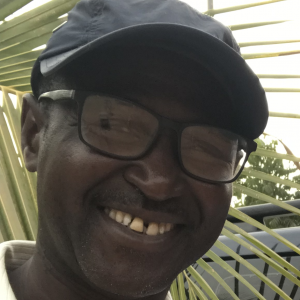Course Details
Syllabus
Program dates
-
Travel dates
-
Course credits
ENG 333, ENG 335, ENG 337
Total credits: 12
Prerequisites
ENG 101
The Senegal Faculty Led Study Abroad Program will be based at WWU with three weeks in Senegal (and an optional fourth week for travel). Students will study and write about West African literature and other forms of cultural expression. They will also write creatively about their experiences.
Courses are cross listed as follows:
- ENG 333 cross listed with ENG 408
- ENG 335 cross listed with ENG 408
- ENG 337
Program Highlights
- Students will meet and interact with griots, scribes, and marabouts
- Meet and interact with Senegalese people
- Attend village gatherings
- Experience West African cuisine
- Visit wild animal and bird reserves
- Visit Goree Island and other historical sites
- Shop in African markets for textiles and artisan goods
- Learn about West African Sufism
- Learn about ajami writing
- Enjoy time at the beach, including optional yoga
- Listen to live West African music
Expectations of Participants
February in Senegal is warm, even "Maui-like," in Dakar and Saint Louis. Students typically wear t-shirts, shorts, and caps. Students also travel to Northern Senegal for a few days, near the border of Mauritania. Weather in the Sahara at this time of year is sometimes hot, dusty, and windy.
Students will live and study alongside people in Senegal, as such they should not expect the same amenities that they may be used to in the United States. This may include but is not limited to access to the internet (including cellular data and wifi), sanitation facilities, air conditioning, or other amenities. Students will be housed in shared rooms for this program. Please also check with your faculty director if you have questions about dietary restrictions or personal care products you hope to find in Senegal, as various foods and products available in the United States may be difficult to find.
With or without reasonable accommodations, walk for hours in warm weather, climb stairs, and stand for prolonged periods. Time sitting and walking will vary a great deal depending on the schedule. Some days will involve much walking, others not much at all. Activities include visits to museums and cultural sites.
The program cannot guarantee accommodation for students with medication that needs to be refrigerated. Electricity blackouts in Senegal occur occasionally, and there is significant bus travel in hot remote places. All lodgings sites have kitchens with refrigeration, but not in individual rooms.
Students must work with the WWU Disability Access Center, Wilson Library 170, (360) 650-3083, drs@wwu.edu. For service eligibility, a complete diagnostic description from a qualified professional is required. Specific accommodations or services are determined on an individual basis and are modified to meet the unique needs of the student and their academic experience. Accommodation policies and procedures are highly individualized and centered on self-advocacy, realistic self-appraisal, and student growth. Each quarter, students need to activate their approved accommodations for each class. Students choose which of their approved accommodations they want to activate for each class.
We strongly recommend that all students traveling on this Global Learning Program are fully vaccinated against COVID-19 to maximize the safety of the student cohort. Staying up to date with COVID-19 vaccines remains the most important step to protect yourself and your community.
Participants are expected to abide by all attendance policies of the program, including those for classes and excursions, and to adhere to the program schedule. Since the programs are academic in nature, parents, friends, partners, and families are not permitted on any part of the Global Learning Program. Personal travel must be outside of the course dates and not conflict with coursework or excursion schedules. Travel plans should be vetted by faculty beforehand to ensure personal plans do not interfere with meeting the learning objectives of the course.

